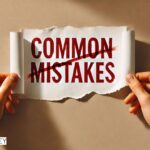- What This Article Covers
- Dress the Part
- Write a Thank You Note
- Practice for Phone Interviews
- Research the Company Thoroughly
- Ask Thoughtful Questions
- Prepare for Behavioral Questions
- Be Punctual
- Maintain Positive Body Language
- You're in Control
- Prepare One Mistake Story
- Let Them Get to Know You as a Person
- Sound confident, but not arrogant
- Summary
We may earn a commission if you click on a product link and make a purchase at no additional cost to you. For more information, please see our disclosure policy.
Last Updated on April 21, 2025
There are several types of interviews: initial interviews with recruiters, telephone/video interviews, and in-person interviews. Whether your dream job is trading stocks on Wall Street or an adventurous job in Alaska, you need to know as much as you can to complete each round of your interview. It is rare these days to get an in-person interview without first going through a telephone interview.
As you know, the purpose of a telephone interview is to screen potential candidates and further pare down the list to a shortlist of individuals who will be asked to interview in person.
What This Article Covers
- Different types of interviews, including phone, video, and in-person.
- Why first impressions matter and how to dress professionally for success.
- The importance of writing a thank you note to leave a lasting impression.
- How to effectively prepare for phone or video interviews to stand out.
- Strategies for researching the company to tailor your responses and show genuine interest.
- How to ask thoughtful questions to assess company fit and demonstrate engagement.
- Tips for answering behavioral questions using the STAR method to highlight your
skills . - The value of positive body language and punctuality during interviews.
Dress the Part
First impressions matter, and your attire plays a significant role in how you’re perceived during an interview. Even if the workplace has a casual dress code, dressing professionally shows respect for the opportunity and your seriousness about the role. Overdressing is far better than underdressing, as being too casual can hurt your chances.
When in doubt, research the company culture or ask for guidance ahead of time. Dressing appropriately demonstrates attention to detail, professionalism, and a genuine interest in making a strong impression.
Write a Thank You Note
Following up with a thank you note is an essential step that many candidates neglect, yet it can significantly influence an employer’s perception of you. A well-crafted thank you note allows you to express genuine gratitude for the interviewer’s time and consideration while reaffirming your enthusiasm for the role. It also provides an opportunity to highlight key points discussed during the interview and address any areas that may need further clarification or emphasis.
To make your thank you note impactful, keep it concise, professional, and tailored to the specific interviewer and role. Mention something unique from your conversation to personalize the message. This thoughtful gesture demonstrates professionalism, reinforces your interest in the position, and helps you stand out from other candidates, leaving a lasting and positive impression.
Sending a powerful thank you letter after an interview can help put you ahead other candidates interviewing for the job so you get the coveted offer. Receive step-by-step instructions on how to write custom thank you letters for every interview.
Practice for Phone Interviews
Phone interviews are often the first step in the
Speak clearly and confidently, and focus on demonstrating your interest in the role. Practice answering common questions and keep your responses concise yet impactful. Strong performance during a phone interview sets the stage for future rounds.
Research the Company Thoroughly
One of the most effective ways to stand out in an interview is by demonstrating a deep understanding of the company. Research its mission, values, recent projects, and industry trends. Knowing this information allows you to tailor your responses to align with the company’s goals and culture.
Mentioning specific insights during the interview shows genuine interest and preparation, helping you connect with the interviewer on a deeper level. Preparation is key to showing you’re a serious and well-informed candidate.
Your success story begins with a resume.
Create a beautiful resume, impress your future employer,
and score the job you’ve always wanted.
Ask Thoughtful Questions
Interviews are not only for the employer to evaluate you but also for you to determine if the company is the right fit. Prepare a list of thoughtful questions about the role,
Prepare for Behavioral Questions
Behavioral
The STAR method is a structured manner of responding to interview questions by discussing the specific Situation, Task, Action, and Result of the situation you are describing. This technique helps you create an easy-to-follow story with a clear conflict and resolution.
Be Punctual
Timeliness is a non-negotiable aspect of professionalism during interviews. Aim to arrive at least 10 to 15 minutes early for in-person interviews, and be prepared to log in a few minutes ahead for virtual interviews. This buffer allows you to collect your thoughts, adjust to the environment, and avoid the stress of being late. Being punctual demonstrates respect for the interviewer’s time and reflects your reliability, leaving a positive impression before the interview even begins.
Maintain Positive Body Language
Your body language can communicate confidence, enthusiasm, and professionalism just as much as your words. During in-person interviews, maintain good posture, make consistent eye contact, and offer a firm handshake when appropriate. For virtual interviews, ensure you’re well-lit, look into the camera, and nod occasionally to show attentiveness. Avoid crossing your arms or fidgeting, as these can signal nervousness or disengagement. Positive body language helps establish rapport and reinforces your verbal responses.
You’re in Control
One aspect of the interview many people don’t fully realize is that the interviewee should be in control of the conversation. Job interviews always contain open-ended questions that can be used to discuss a wide range of your qualities. Go into your interview having identified a few topics about yourself you’d like to cover and steer the conversation towards them when it feels natural.
Prepare One Mistake Story
In every interview, there’s always a question that goes something like: “Describe a flaw or mistake you’ve made in your past.” It’s crucial to go into your interview knowing how to respond to this. Be truthful, but always tell a story of a time you made a mistake but learned a valuable lesson that has made you a stronger candidate.
Land your next job faster. Our services have helped over 1 million professionals land more interviews and get hired faster.
Let Them Get to Know You as a Person
Another important thing to remember is that while your resume and qualifications have gotten you in the door, the
Sound confident, but not arrogant
While it’s important to talk about your better qualities if you sound too confident you’ll talk your way out of a job. As long as you don’t go out of your way to discuss your accomplishments, you should do fine. Focus on your accomplishments and how they pertain to the job opportunity.
Sending a powerful thank you letter after an interview can help put you ahead other candidates interviewing for the job so you get the coveted offer. Receive step-by-step instructions on how to write custom thank you letters for every interview.
Summary
Mastering various types of interviews, from phone to in-person, requires preparation and attention to detail. By focusing on professional presentation, effective communication, and a thorough understanding of the company, you can significantly enhance your chances of success. Remember that every step, from research to follow-up, contributes to leaving a lasting positive impression.
It’s no secret that job interviews are nerve-wracking, especially if you feel the position is a much-needed stepping stone into a fulfilling product management career. Take a look at CareerAlley's interview resources to improve your interview skills and nail your next interview.
Related posts:
Joey Trebif is the pen name of Mark Fiebert, a former finance executive who hired and managed dozens of professionals during his 30-plus-year career. He now shares expert job search, resume, and career advice on CareerAlley.com.










